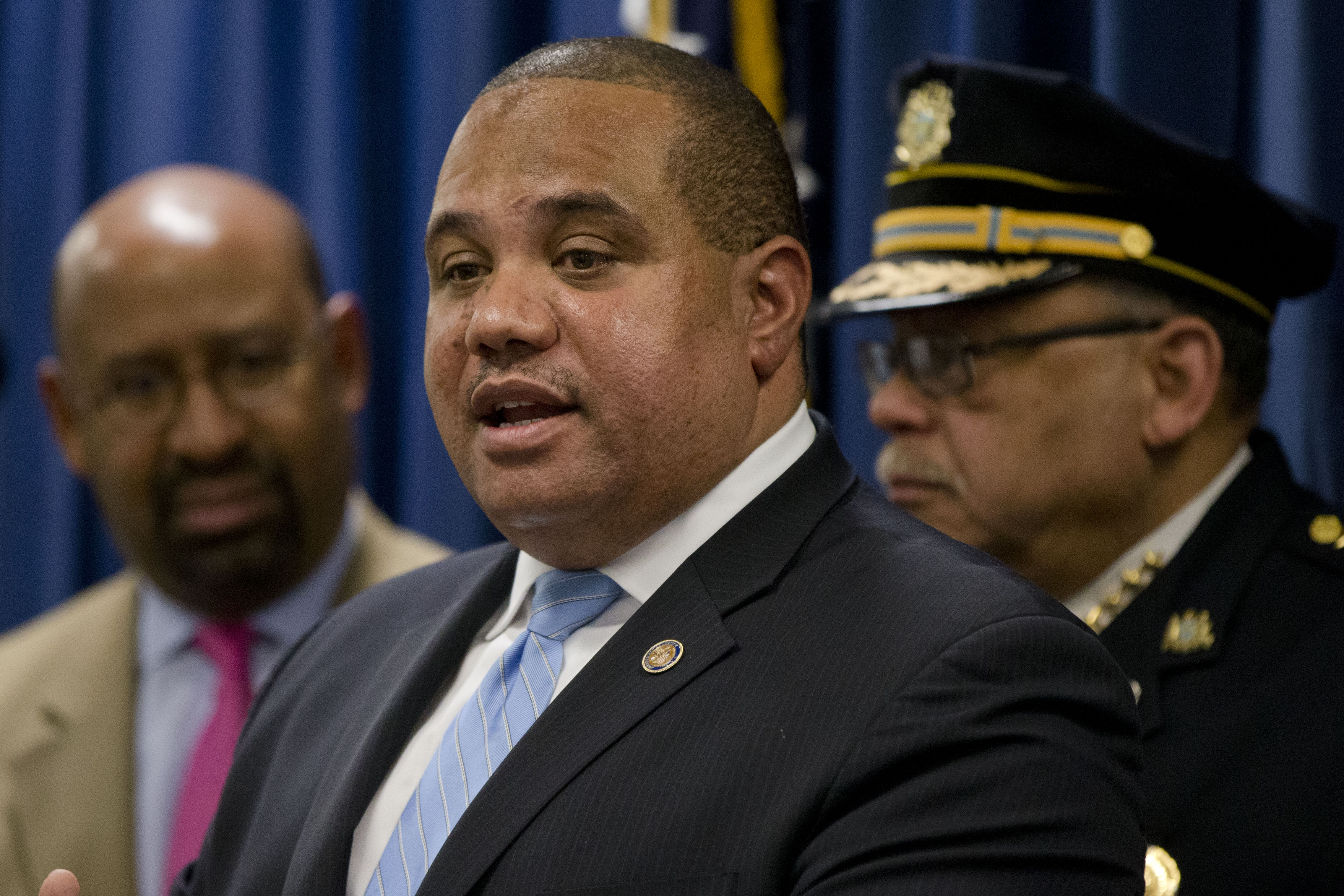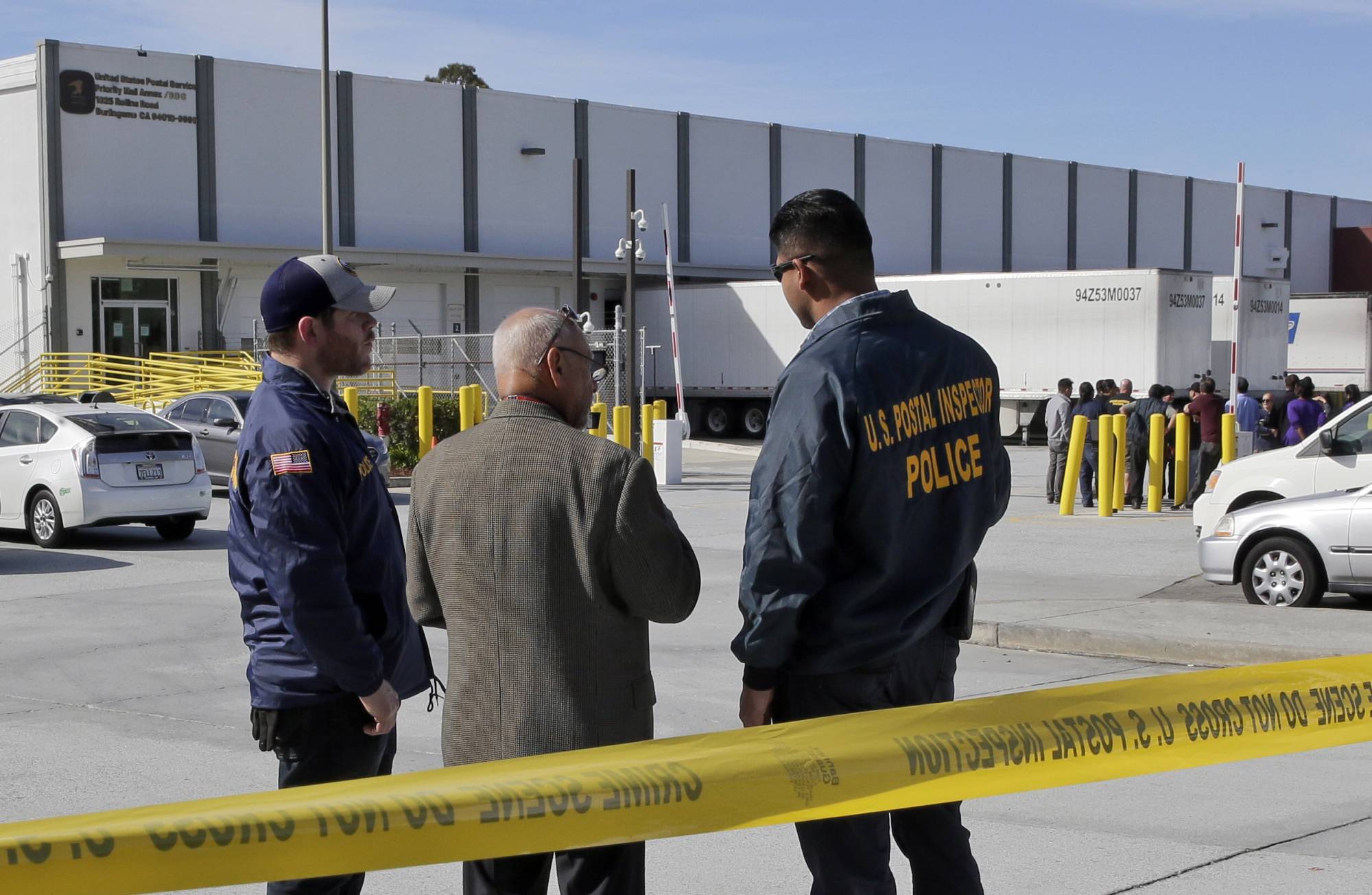Federal court sends USPS police jurisdiction case back to arbitrator
A long-running legal dispute between USPS and the union that represents its postal police force heads back to a third-party arbitrator to settle the issue.
A long-running legal dispute between the Postal Service and the union that represents its postal police force, over the jurisdiction of postal police officers (PPOs), heads back to a third-party arbitrator to settle the issue.
The U.S. District Court for the District of Columbia, in a ruling Wednesday, sent the case back to an arbitrator, to “hash out the parties’ differences.”
The case heads back to arbitrator Barry Simon, who ruled in February 2023 that postal police officers have jurisdictional authority beyond USPS facilities, when carrying out some duties, such as mobile patrols and protection details for high-value mail.
The lawsuit centers on a memo that the Postal Inspection Service (USPIS), the Postal Service’s law enforcement arm, issued a memo in August 2020, stating postal police officers “may not exercise [any] law enforcement authority in contexts unrelated to Postal Service premises.”
USPS sought to dismiss the lawsuit, arguing it was moot, because it rescinded the 2020 memo and “eliminated any live dispute between the parties.”
“Finding that the union has raised a genuine dispute over whether USPS has complied with the arbitrator’s ruling notwithstanding its retraction of the directive, and seeing no other obstacles to confirmation of the award, the court will grant the union’s petition, deny the Postal Service’s motion to dismiss, and remand the matter to the arbitrator to hash out the parties’ differences,” District Court Judge Christopher Cooper wrote in his ruling.
USPS spokeswoman Darlene Casey said in a statement that “the Postal Service remains confident in its position that Postal Police Officer (PPO) law enforcement authority is limited to postal premises under the law, and no court or arbitrator has disagreed with that conclusion.”
“The recent district court decision likewise did not express a contrary view, but instead merely returned a matter to an arbitrator to obtain clarification of his award, which we believe will be construed favorably to the Postal Service,” Casey said.
The case has bounced back and forth between the district court and a third-party arbitrator over the past few years.
Cooper ruled in November 2020 that USPS didn’t exceed its legal authority, when it interpreted the 2006 Postal Accountability and Enhancement Act to “require or permit USPS to restrict PPOs’ law-enforcement activities to contexts related to postal real estate.”
Cooper, however, also ruled that the court lacked jurisdiction to grant a request from USPS to block an arbitrator from settling the matter.
“This case is the latest proceeding to raise a long-debated question: What, exactly, is the lawful role of Postal Police Officers (‘PPOs’) employed by the United States Postal Service?” Cooper wrote in November 2020.
Postal police union applauds court ruling
Frank Albergo, president of the Postal Police Officers Association, said in an email that the court’s latest ruling was a victory for the union — and that the court is sending the case back to the arbitrator, “so that the award can be clarified and determine the Postal Service’s compliance.”
Albergo said the court found the arbitrator’s February 2023 award was “ambiguous in what the Postal Service must do, other than rescind the 2020 USPIS directive that stripped Postal Police Officers of their policing power.”
“The most common-sense interpretation was that PPOs have authority to protect whatever property the Postal Service chooses for us to protect,” Albergo said in a phone interview.
Simon, in his February 2023 award, ordered USPIS to follow what’s written in its handbooks, and to rescind its 2020 memo, which prevented PPOs from being used to protect mail and carriers away from USPS property.
PPOs, he determined, have escorted letter carriers delivering parcels to the “Jewelers Row District” of Chicago, a two-block stretch of businesses that specialize in cutting and setting diamonds.
However, he determined USPIS handbooks still impose limits on what law enforcement activities postal police are allowed to do off USPS property. He noted, for example, that PPOs are not allowed to engage in “high-speed pursuit” of an individual in their vehicles.
Albergo said it remains unclear when the arbitrator might take another look at this case, but said he’d be “shocked if he rules against us.”
“Although he may not have expressly stated it, but he’s clearly saying that PPOs are assigned to off-property functions. They have policing power,” Albergo said about the arbitrator’s February 2023 award. “He says the union can’t force the Postal Service to assign PPOs to protect letter carriers, and protect mail in transit. And the arbitrator can’t force the Postal Service. But any functions that happen off-property, we have policing power — that’s what postal regulations state.”
As for why USPIS issued its August 2020 in the first place, PPOA told the court that USPS decisions to rein in postal policy jurisdiction “usually coincided with contract negotiations and were strategically designed by USPS to justify paying PPOs less than they would otherwise earn.”
The issue of postal police jurisdiction has, in fact, been a key point of contention for contract negotiations.
USPS officials, however, in a separate third-party arbitration case, argued postal police officers should be paid closer to what “private-sector armed security guards and campus police officers” receive, rather than police officers.
“Clearly, this is the case that it’s more important to the Postal Service to beat the PPOA in a labor dispute than it is to allow PPOs to protect letter carriers and the mail,” Albergo said.
Former Labor secretary tapped to serve on USPS board
President Joe Biden announced Thursday that he intends to nominate his former Labor Secretary, Marty Walsh, to serve on the USPS Board of Governors.
Walsh stepped down as Labor Secretary last year, and is the current executive director of the National Hockey League Players’ Association.
The USPS Board of Governors currently has two vacancies.
House Oversight and Accountability Committee Ranking Member Jamie Raskin (D-Md.) recently led 80 House Democrats in calling on Biden to fill those USPS board vacancies.
“The expiration of the terms of two members of the Board of Governors presents the Administration with a unique opportunity to ensure that the Postal Service has a vibrant future,” the members wrote in a Feb. 1 letter. “Now more than ever, it is important that the Board of Governors have a full, diverse, and future-oriented Postal Board of Governors in place that will uphold its mission of public service.”
Lawmakers, in their letter to the president, said USPS “suffers from slow rates of delivery service and increased costs,” and called for new leadership to reverse those trends.
USPS raised the prices of its monopoly mail products in January — its fifth price hike in three years. The price of a first-class “forever” stamp now costs 68 cents — up from 66 cents.
Copyright © 2024 Federal News Network. All rights reserved. This website is not intended for users located within the European Economic Area.
Jory Heckman is a reporter at Federal News Network covering U.S. Postal Service, IRS, big data and technology issues.
Follow @jheckmanWFED






